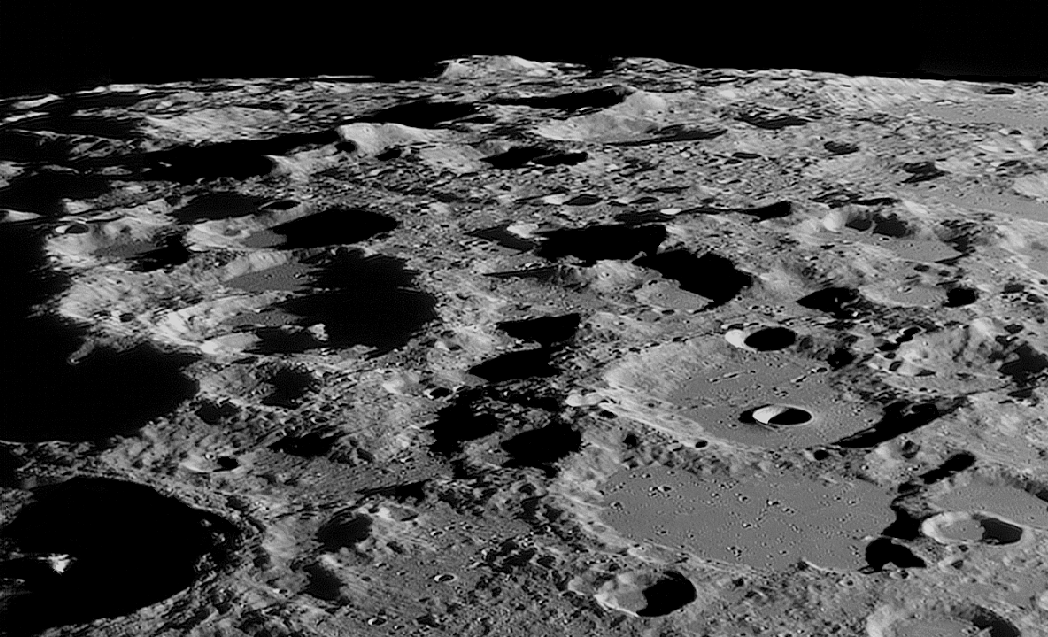Difference between revisions of "November 15, 2010"
| Line 3: | Line 3: | ||
<!-- ws:start:WikiTextHeadingRule:1:<h1> --> | <!-- ws:start:WikiTextHeadingRule:1:<h1> --> | ||
<!-- ws:start:WikiTextLocalImageRule:16:<img src="/file/view/LPOD-Nov15-10.gif/179443963/LPOD-Nov15-10.gif" alt="" title="" /> -->[[File:LPOD-Nov15-10.gif|LPOD-Nov15-10.gif]]<!-- ws:end:WikiTextLocalImageRule:16 --><br /> | <!-- ws:start:WikiTextLocalImageRule:16:<img src="/file/view/LPOD-Nov15-10.gif/179443963/LPOD-Nov15-10.gif" alt="" title="" /> -->[[File:LPOD-Nov15-10.gif|LPOD-Nov15-10.gif]]<!-- ws:end:WikiTextLocalImageRule:16 --><br /> | ||
| − | <em>image by [mailto:CHRISTIAN.ARSIDI@wanadoo.fr | + | <em>image by [mailto:CHRISTIAN.ARSIDI@wanadoo.fr Christian Arsidi], near Paris, France</em><br /> |
<br /> | <br /> | ||
The Moon has no atmosphere, but Earth has, even though it doesn't look like Christian's telescope looked through it. This is a remarkably sharp image that seems like an out-the-porthole view. It is also an image of two contrasting terrains - the rough-textured crater rims and the spaces between them, and the smooth crater floors. This is terrain - both literally and figuratively - that LPOD has considered before. How can the smooth material be fluidized ejecta from the formation of the Orientale Basin delivered on a space-borne trajectory, and yet only land in the craters? I can understand how ejecta that landed on crater walls may have flowed down hill to collect on the floors, but what of ejecta that landed beyond the rim crest? There must have been some - where did it go. The alternative explanation that the smooth stuff is volcanic, having risen up fractures under each crater is perfectly reasonable, except that spectrally the smooth stuff looks like normal highland material. A ghost-like crater on the floor of Casatus, and another that has lost its rim in [http://the-moon.wikispaces.com/R%C3%BCkl+72 Klaproth] are very similar to lava modified features on the edges of maria. <br /> | The Moon has no atmosphere, but Earth has, even though it doesn't look like Christian's telescope looked through it. This is a remarkably sharp image that seems like an out-the-porthole view. It is also an image of two contrasting terrains - the rough-textured crater rims and the spaces between them, and the smooth crater floors. This is terrain - both literally and figuratively - that LPOD has considered before. How can the smooth material be fluidized ejecta from the formation of the Orientale Basin delivered on a space-borne trajectory, and yet only land in the craters? I can understand how ejecta that landed on crater walls may have flowed down hill to collect on the floors, but what of ejecta that landed beyond the rim crest? There must have been some - where did it go. The alternative explanation that the smooth stuff is volcanic, having risen up fractures under each crater is perfectly reasonable, except that spectrally the smooth stuff looks like normal highland material. A ghost-like crater on the floor of Casatus, and another that has lost its rim in [http://the-moon.wikispaces.com/R%C3%BCkl+72 Klaproth] are very similar to lava modified features on the edges of maria. <br /> | ||
<br /> | <br /> | ||
| − | <em>[mailto:tychocrater@yahoo.com | + | <em>[mailto:tychocrater@yahoo.com Chuck Wood]</em><br /> |
<br /> | <br /> | ||
<strong>Technical Details</strong><br /> | <strong>Technical Details</strong><br /> | ||
| Line 16: | Line 16: | ||
<br /> | <br /> | ||
<hr /> | <hr /> | ||
| − | <div>You can support LPOD when you buy any book from Amazon thru [http://www.lpod.org/?page_id=591 | + | <div>You can support LPOD when you buy any book from Amazon thru [http://www.lpod.org/?page_id=591 LPOD!]<br /> |
</div> | </div> | ||
---- | ---- | ||
===COMMENTS?=== | ===COMMENTS?=== | ||
| − | + | Register, and click on the <b>Discussion</b> tab at the top of the page. | |
Revision as of 17:27, 11 January 2015
Crystal Clear but Still Unclear

image by Christian Arsidi, near Paris, France
The Moon has no atmosphere, but Earth has, even though it doesn't look like Christian's telescope looked through it. This is a remarkably sharp image that seems like an out-the-porthole view. It is also an image of two contrasting terrains - the rough-textured crater rims and the spaces between them, and the smooth crater floors. This is terrain - both literally and figuratively - that LPOD has considered before. How can the smooth material be fluidized ejecta from the formation of the Orientale Basin delivered on a space-borne trajectory, and yet only land in the craters? I can understand how ejecta that landed on crater walls may have flowed down hill to collect on the floors, but what of ejecta that landed beyond the rim crest? There must have been some - where did it go. The alternative explanation that the smooth stuff is volcanic, having risen up fractures under each crater is perfectly reasonable, except that spectrally the smooth stuff looks like normal highland material. A ghost-like crater on the floor of Casatus, and another that has lost its rim in Klaproth are very similar to lava modified features on the edges of maria.
Chuck Wood
Technical Details
01 September 2010, 5:14 UT; OTA C14, Barlow 2x + Skynyx 2-1 m + Iris software
Related Links
Rükl plate 72
COMMENTS?
Register, and click on the Discussion tab at the top of the page.



